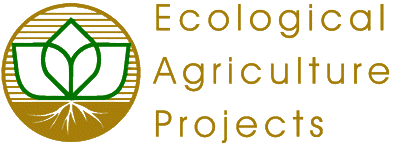

EAP Publications | Virtual Library | Magazine Rack | Search | What's new
Join the Ecological Solutions Roundtable
Wilfred Hartl
ABSTRACT
Hartl, W., 1989. Influence of undersown clovers on weeds and on the yield of winter wheat in
organic farming. Agric. Ecosystems Environ., 27: :389-396.
A pot experiment was carried out in 1982 to investigate the influence of undersown Medicago lupulina L. and Trifolium resupinatum L. on the yield of winter wheat and on the dry matter production of one specific group comprising 7 species of weeds. These plants were combined in 6 different combinations. Compared with wheat grown alone, the grain yield was not significantly increased by M. lupulina and not significantly decreased by T. resupinatum. The straw yield was significantly higher when M. lupulina was undersown and lower with T. resupnatum. M. lupulina and T. resupinatum reduced the dry matter of the weed group significantly by 55% and 70%, respectively.
The effect of undersowing winter wheat with each one of these two clovers was tested in a field trial in the same year. The main results with each of the two clovers were: significant reduction in the weight of the grain yield: reduction of the straw yield (significantly with T. resupinatum ); no significant reduction of the dry matter of weeds having died till harvest time; significant reduction (50% ) of dry matter of weeds still living at harvest time. A field trial with T. repens likewise showed a reduction in the dry matter of the weeds and a positive, but not significant, influence on the yield of the wheat. The results show that in organic farming the negative consequences of a late weed development may be diminished by undersowing the appropriate species of clover.
Copyright © 1989